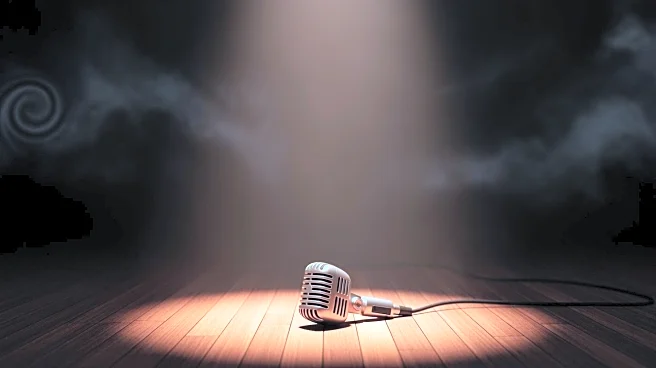What's Happening?
Bill Maher, the host of 'Real Time,' has announced his retirement from stand-up comedy and live shows, citing concerns over the current political climate in the United States. Maher expressed fears of being targeted or shot due to his moderate views,
which have drawn criticism from both Democrats and Republicans. During a conversation with Patton Oswalt on his podcast, Maher explained that the tense political atmosphere makes it a dangerous time to perform live. Additionally, Maher mentioned fatigue from travel and competition with younger comedians as factors in his decision. He noted that his regular TV presence reduces the incentive for audiences to attend his live shows, despite his success in selling tickets for theater performances.
Why It's Important?
Maher's decision to retire from live performances highlights the impact of political polarization on public figures and entertainers in the U.S. His concerns about safety reflect broader societal issues where political discourse can lead to threats or violence. This development may influence other comedians and public figures to reconsider their engagement in live events, potentially affecting the entertainment industry. Maher's retirement also underscores the challenges faced by older comedians in competing with younger talent, as well as the changing dynamics of audience preferences in the entertainment sector.
What's Next?
While Maher will no longer perform live, he continues to host 'Real Time' and produce content for his podcast, maintaining his presence in the media landscape. His retirement from stand-up may lead to discussions within the entertainment industry about the safety and viability of live performances in politically charged environments. Other comedians and entertainers might follow suit, opting for safer platforms like television and digital media. Maher's decision could also prompt industry stakeholders to address security concerns at live events.
Beyond the Headlines
Maher's retirement raises questions about the role of political discourse in shaping public safety and freedom of expression. The intersection of entertainment and politics is increasingly fraught, with comedians often facing backlash for their views. This situation may lead to a reevaluation of how political commentary is delivered in entertainment, potentially influencing the content and format of comedy shows. Additionally, Maher's decision reflects broader societal trends where age and generational shifts impact career longevity and audience engagement.

















